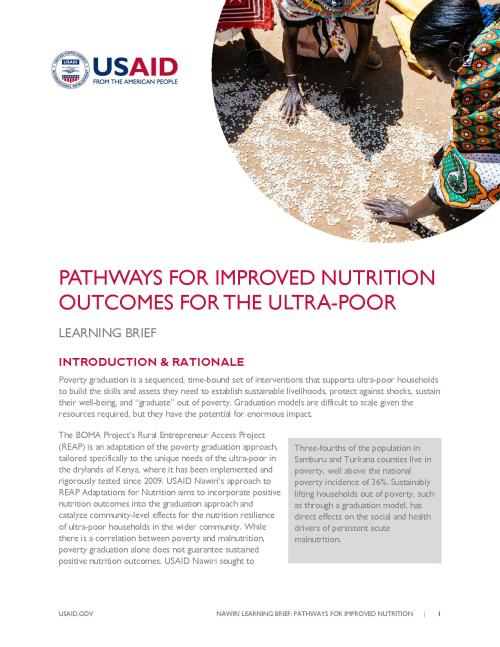This brief summarizes the learning from USAID Nawiri’s experience in adapting a poverty graduation model to incorporate nutrition-specific and -sensitive approaches and among ultra-poor households. A few insights were gained from this experience: 1) building the capacity of last-mile food supply chain actors can enable inclusive food systems that address food security and malnutrition of ultra-poor households; 2) poverty reduction efforts should include layered nutrition and women’s empowerment approaches to ensure improved nutrition outcomes; 3) bridging social capital strengthens informal social protection and permits participation of the ultra-poor in governance processes; 4) multi-pronged approach is required for demand creation and promotion of nutritious foods for the ultra-poor; and 5) adapting a poverty graduation model can catalyze community-level nutrition outcomes by reducing women’s time poverty and embedding and layering nutrition-specific interventions.
Learning Brief
